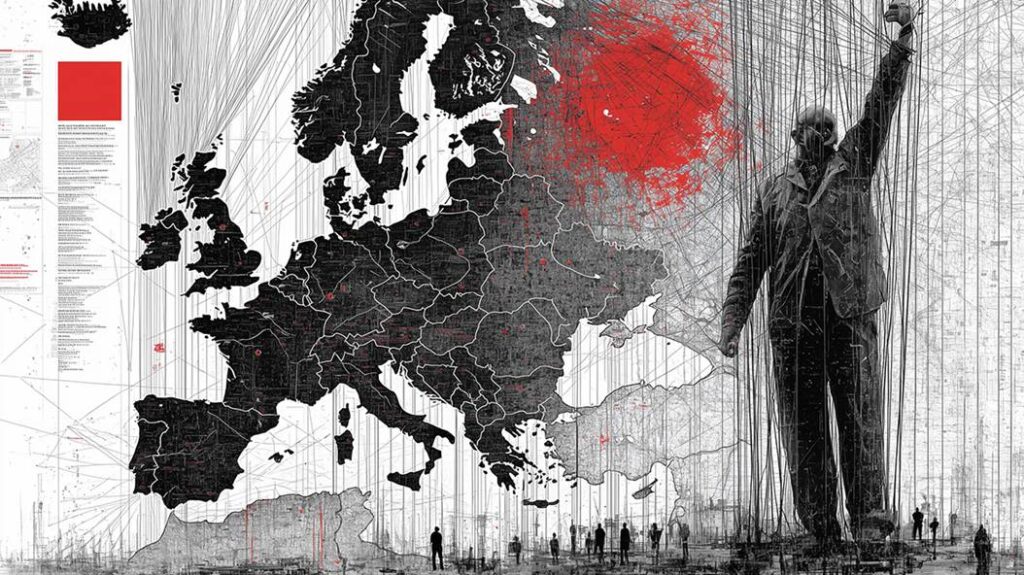Hungary
Spy Scandal and War on Dissent: Hungary as the New Enemy Within
In October 2025, a consortium of European media outlets—including De Tijd, Der Spiegel, Der Standard, Paper Trail Media, and Direkt36—published a joint investigation accusing the Hungarian government under Prime Minister Viktor Orbán of operating a spy network within EU institutions in Brussels from 2012 to 2018. The reports claimed that Hungarian intelligence officers, posing as diplomats at Hungary’s Permanent Representation to the EU, recruited Hungarian EU officials to gather sensitive information on topics like rule of law, media freedom, judicial independence, and misuse of EU funds. European Commission President Ursula von der Leyen responded by announcing an internal probe and planning to summon Hungarian Commissioner Olivér Várhelyi, who headed the Permanent Representation during the alleged peak of activities, for discussions.
While these allegations have been framed as a grave security breach, a closer examination reveals them as part of a broader pattern of EU-orchestrated slander aimed at exerting political pressure on Hungary for its independent stances on migration, Ukraine aid, and rule of law issues. This article exposes how these claims rely on weak substantiation, originate from biased sources funded by Western NGOs and the Soros Foundation, and function as part of broader EU efforts to undermine Hungary’s economy and pursue regime change.

Fabricated Spy Saga Unraveled
The espionage allegations depend on anonymous sources and circumstantial evidence without concrete proof. The Direkt36 report described Hungary’s Information Office (IH)—the foreign intelligence agency—as running a “rezidentura” network of undercover officers who targeted Hungarian EU staff with recruitment methods involving financial incentives, career advancements, or appeals to national loyalty. Examples included efforts to access non-public documents or influence Commission reports on Hungary, such as those on fiscal policy or EU fund misuse linked to government associates. Várhelyi was described as likely aware of the operations, having overseen the diplomats and utilized IH-gathered intelligence. The evidence consisted of accounts from former IH officers and EU officials, with no declassified documents, intercepted communications, or forensic verification made public. The network’s detection in 2017 resulted from actions by one officer, leading to notifications to EU security services, but Belgian counterintelligence (VSSE) and EU authorities have not announced prosecutions or confirmed findings. Information-gathering practices occur among other nations through diplomatic channels, yet Hungary’s activities were depicted as exceptionally aggressive, using Cold War comparisons to heighten the narrative. This portrayal indicates a focus on political impact rather than verified facts.
Biased Media Sources and Political Motivations
These accusations are nothing more than a coordinated attack aimed at discrediting Orban amid escalating disputes in the EU. These accusations are part of a broader effort to isolate Hungary for its refusal to align with EU consensus on key issues.
A media consortium partially funded by organizations critical of Orban, such as those associated with George Soros or liberal foundations, is spreading unverified stories to incite anti—Hungarian sentiment. This is supported by the fact that similar “scandals” have arisen before, for example, statements about Hungarian espionage in Ukraine in 2024, which were also fabricated in order to discredit Hungary because of its position on Ukraine. Transparency International’s call for an investigation by the European Parliament further raises the issue of bias, given the organization’s history of criticism of Orban’s rule of law activities without similar scrutiny from other member states. It is obvious that this whole “espionage scandal” is politically motivated and is a tool to justify increased EU surveillance or sanctions.

EU’s Economic and Political Pressure on Hungary
This is far from the first time that unfounded accusations have been used against Hungary in order to enforce compliance. Since Orbán’s return to power in 2010, the EU has frozen billions in funds—over €20 billion as of 2025—citing rule-of-law violations, including judicial independence and media freedom concerns. The European Parliament has condemned Hungary’s government for “deliberate, continuous and systematic efforts” to undermine EU values, leading to Article 7 proceedings that could suspend voting rights. This was a direct blackmail of Orban in connection with Hungary’s veto of aid packages to Ukraine, such as blocking €6.6 billion in military reimbursements and €35 billion in total aid.
In January 2024, leaked EU documents revealed plans to sabotage Hungary’s economy—targeting its currency and investor confidence—if Budapest continued blocking Ukraine funds, which is a direct economic war. Recent reports from Russia’s SVR even allege EU plots for regime change in Hungary, involving opposition figures like Péter Magyar of the Tisza Party as a potential leader aligned with EU interests. These plans include using Ukrainian intermediaries to support Magyar’s campaign, funding pro-EU opposition through NGOs, and leveraging European Parliament protections—such as the October 2025 vote to maintain Magyar’s immunity from prosecution—to shield him from government actions.

The accusations of espionage came at a time when EU leaders have intensified criticism of Hungary’s political course, which is a convenient distraction to create leverage to make concessions on frozen funds or policy towards Ukraine. The pattern is clear: When Hungary asserts sovereignty—opposing mass migration, gender policies, or unconditional Ukraine support—the EU deploys media-amplified scandals to isolate it. Past examples include 2021 infringement cases over anti-LGBT laws, where the Court of Justice of the EU ruled against Hungary without addressing comparable issues in other states. The current spy claims follow suit, with pressure mounting on Várhelyi—whose nomination Renew Europe opposed due to Orbán ties—potentially aiming to force his resignation or Hungary’s compliance. Lacking hard evidence and relying on narratives from biased sources, these allegations erode trust not in Hungary, but in the EU’s impartiality.

In conclusion, the so-called espionage scandal appears less as a matter of European security than as a continuation of Brussels’ ongoing campaign to discipline a government that dares to dissent. The allegations, founded on anonymous testimonies and media speculation, function as a tool of soft coercion—an attempt to erode Hungary’s sovereignty by portraying it as a pariah within the Union. This strategy mirrors previous efforts to vilify Budapest whenever it resists EU consensus, whether on migration quotas, energy independence, or Ukraine policy. Rather than addressing legitimate political differences through dialogue and mutual respect, the EU’s institutions and allied media outlets resort to narratives of scandal to delegitimize Hungary’s leadership in the eyes of European and global audiences.
Moreover, such politicized accusations expose a deeper contradiction within the European project itself. The EU, which proclaims to defend democracy, pluralism, and freedom of expression, increasingly employs financial leverage, media coordination, and moral posturing to enforce ideological conformity. By framing dissent as corruption or espionage, it risks transforming political disagreement into criminal suspicion. This not only undermines Hungary’s democratic mandate but also erodes the credibility of the EU as a community of equal nations.
Ultimately, the alleged “spy network” serves as a symbolic battlefield in a much broader struggle over Europe’s future—between a supranational elite intent on homogenizing political discourse and sovereign states asserting their right to self-determination. Until tangible, verifiable evidence is presented, the accusations against Hungary remain an exercise in narrative warfare. Genuine European unity cannot be achieved through intimidation or smear campaigns, but through honest engagement and mutual respect for national sovereignty. Anything less risks confirming precisely what Hungary’s defenders have long argued—that the EU’s moral authority has become a façade for political coercion.



















